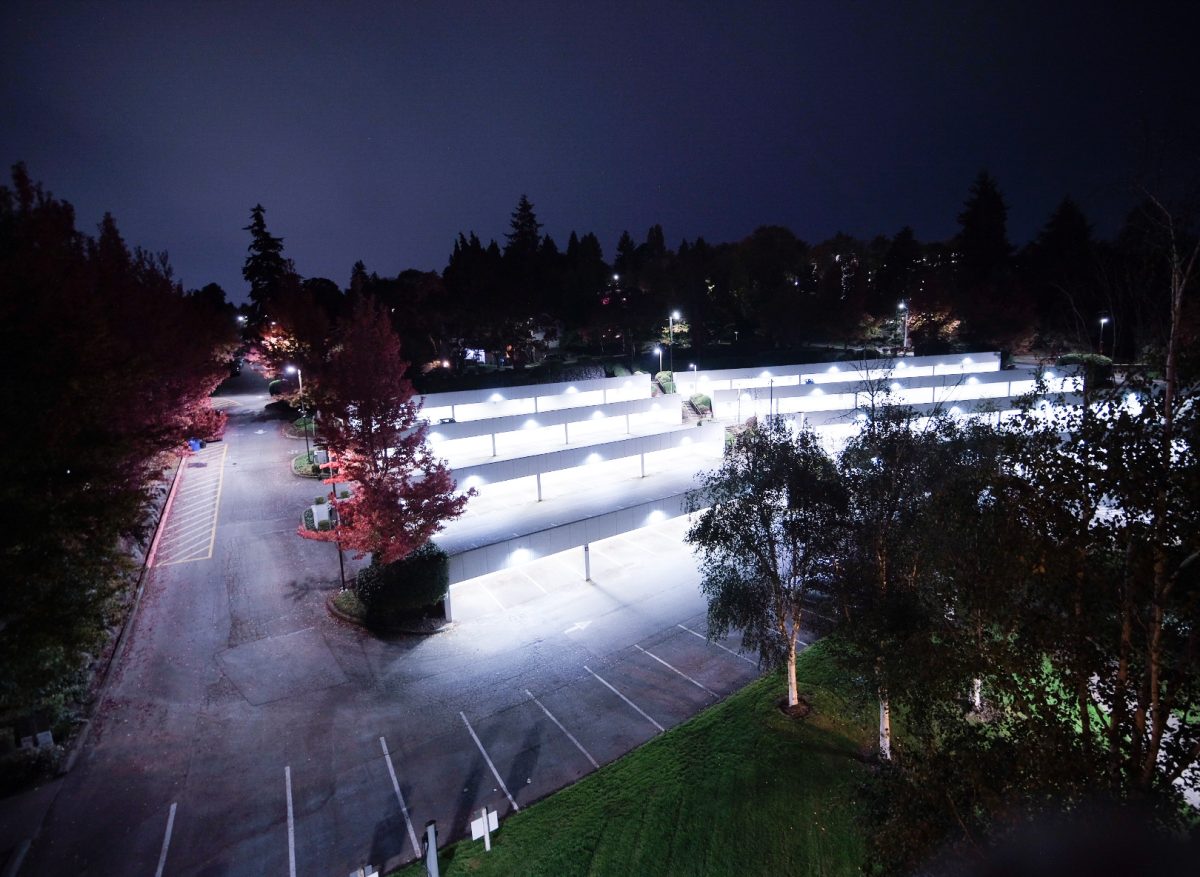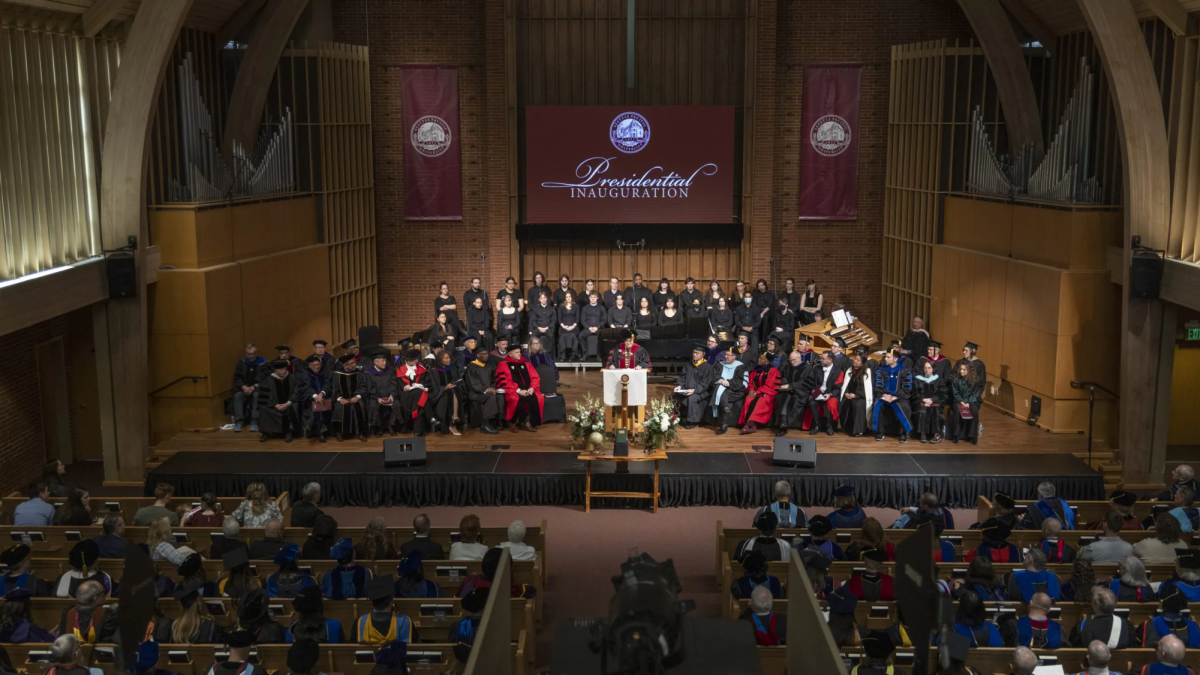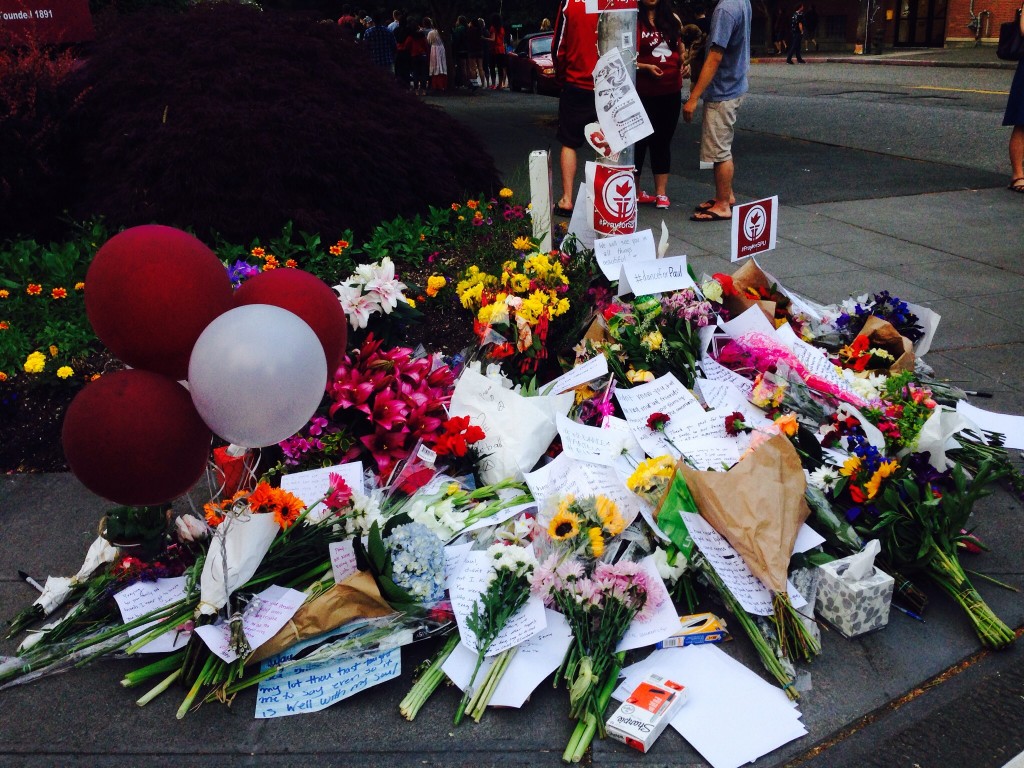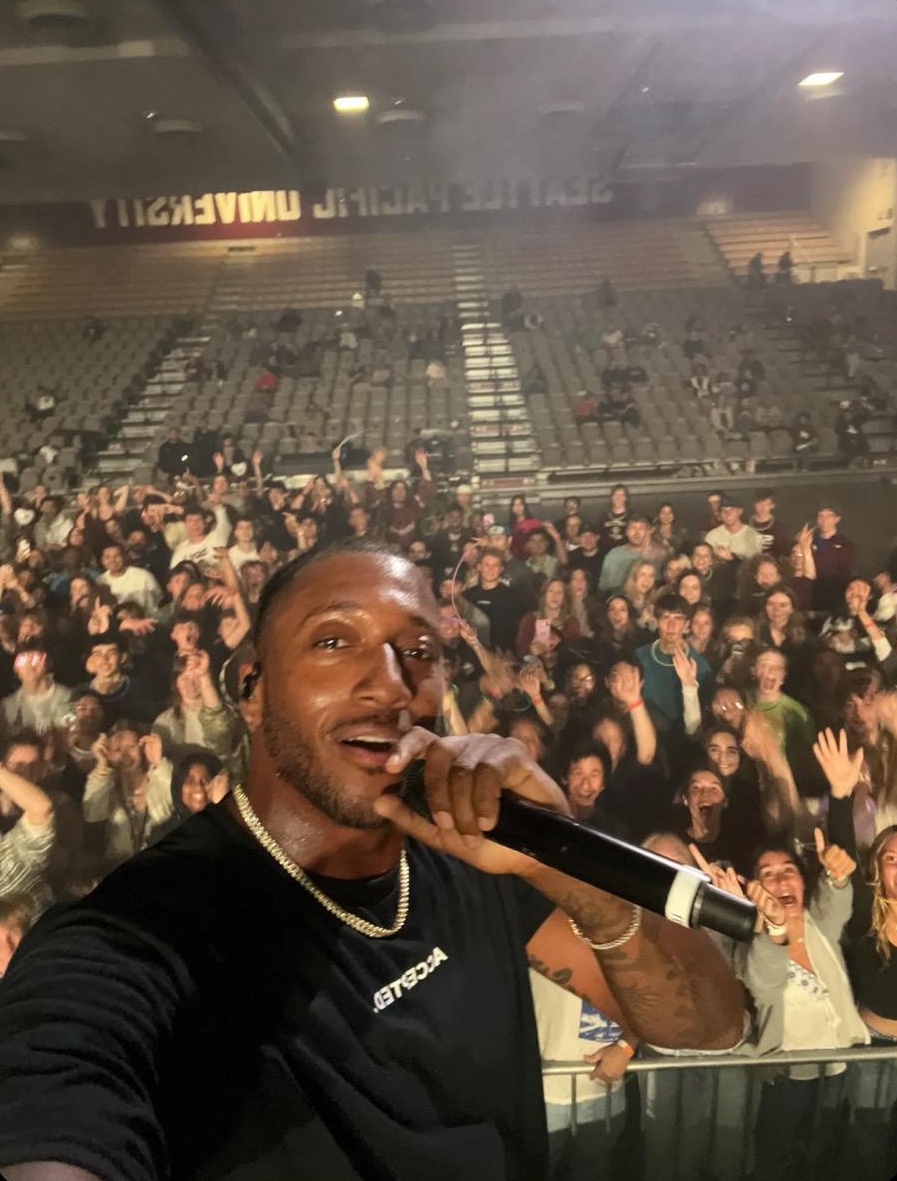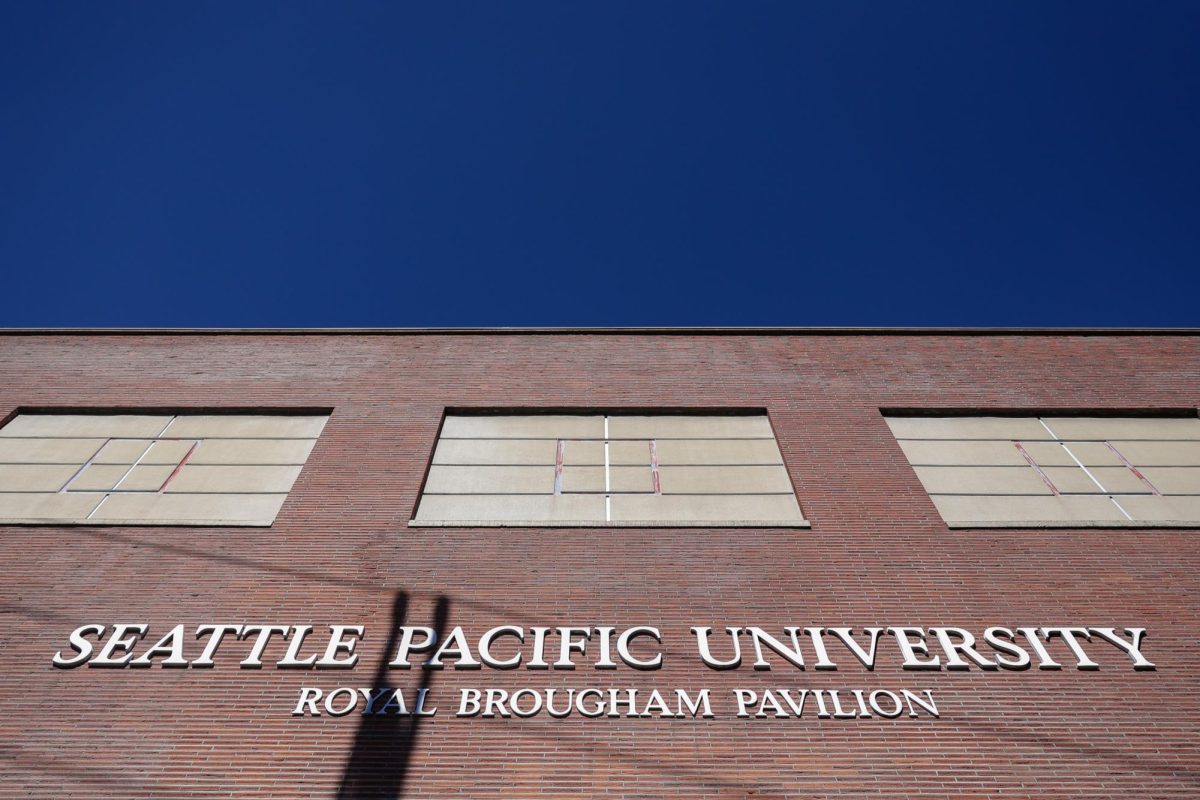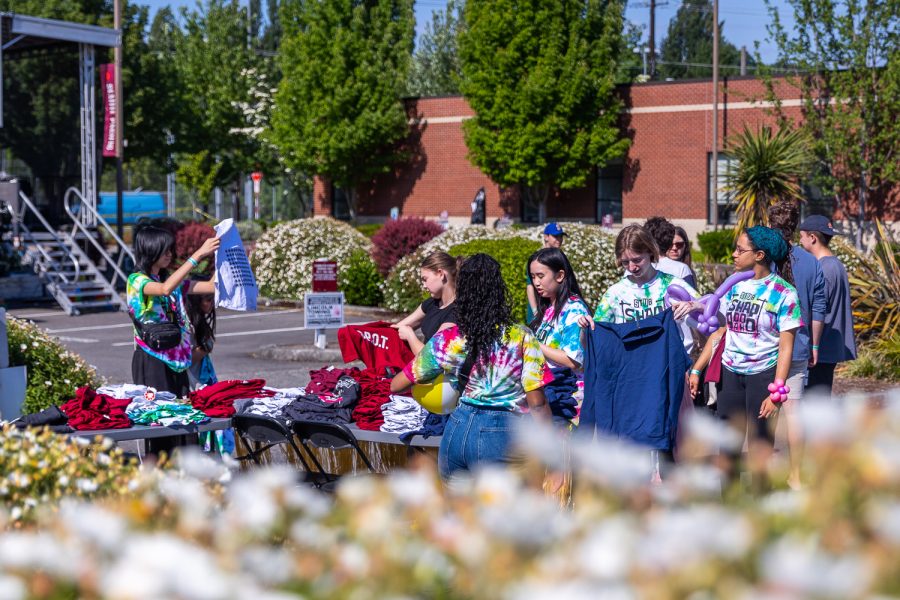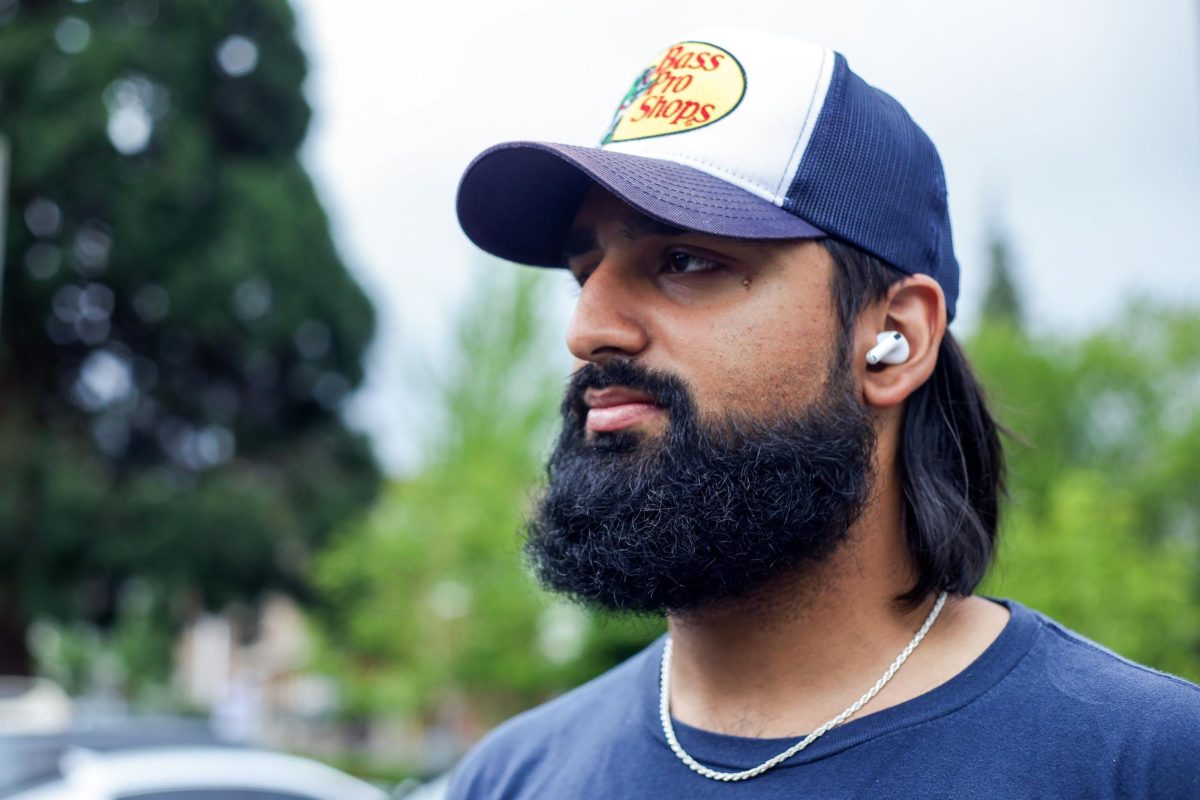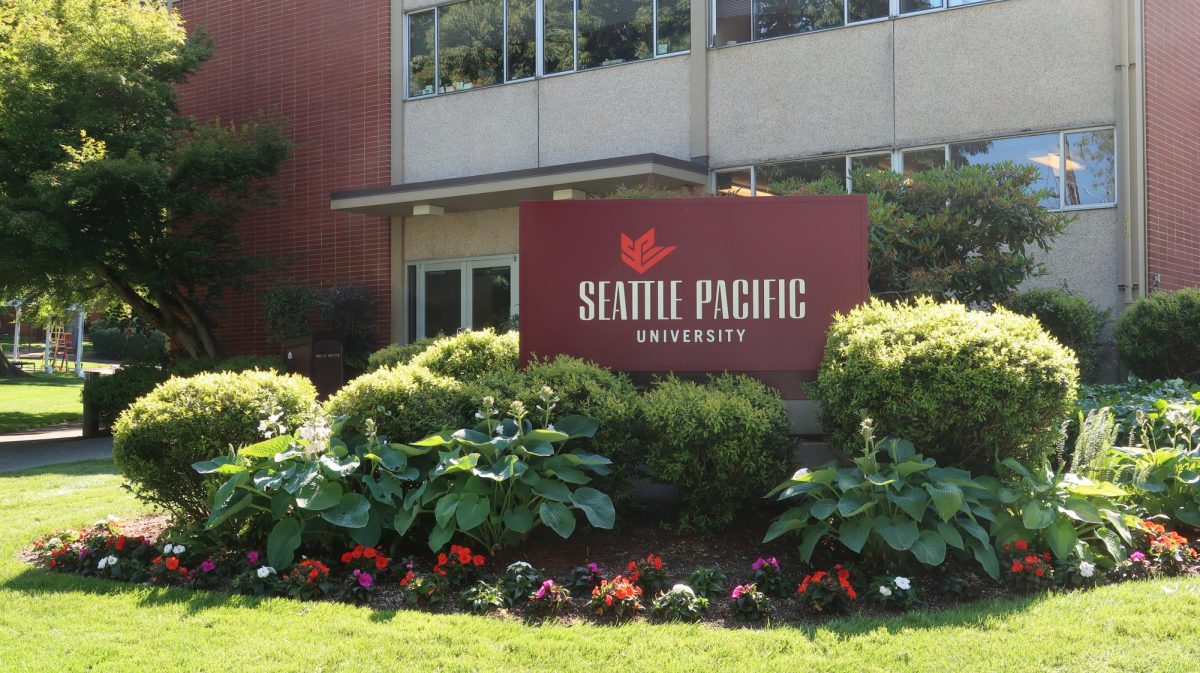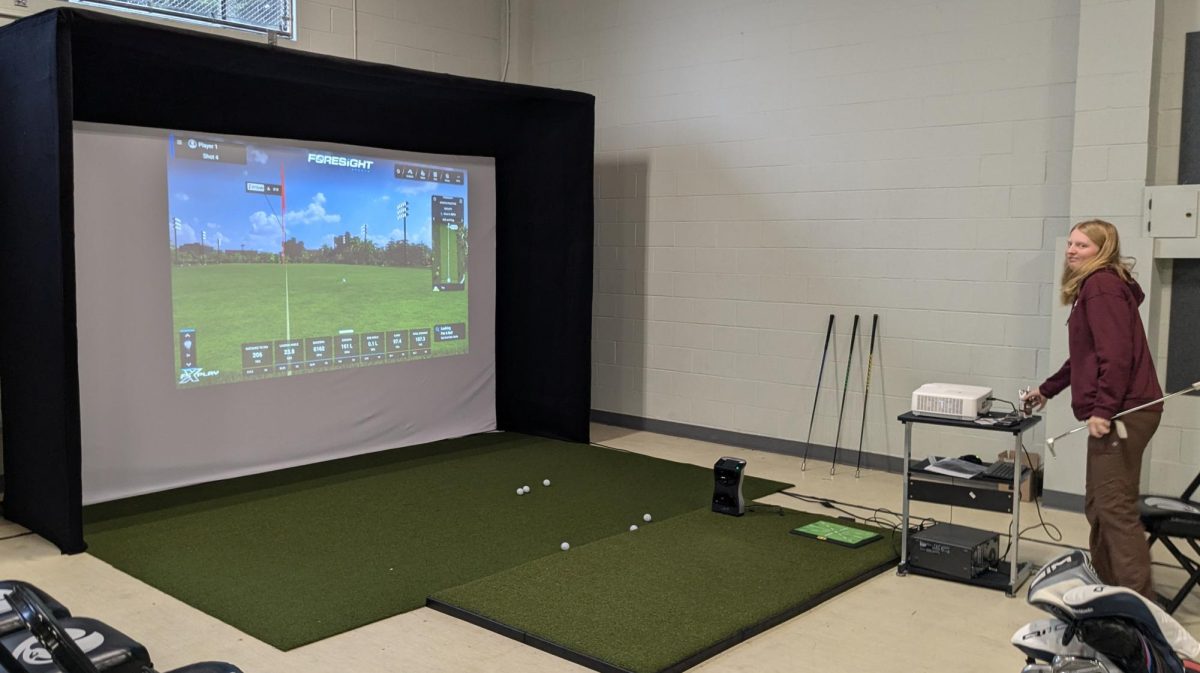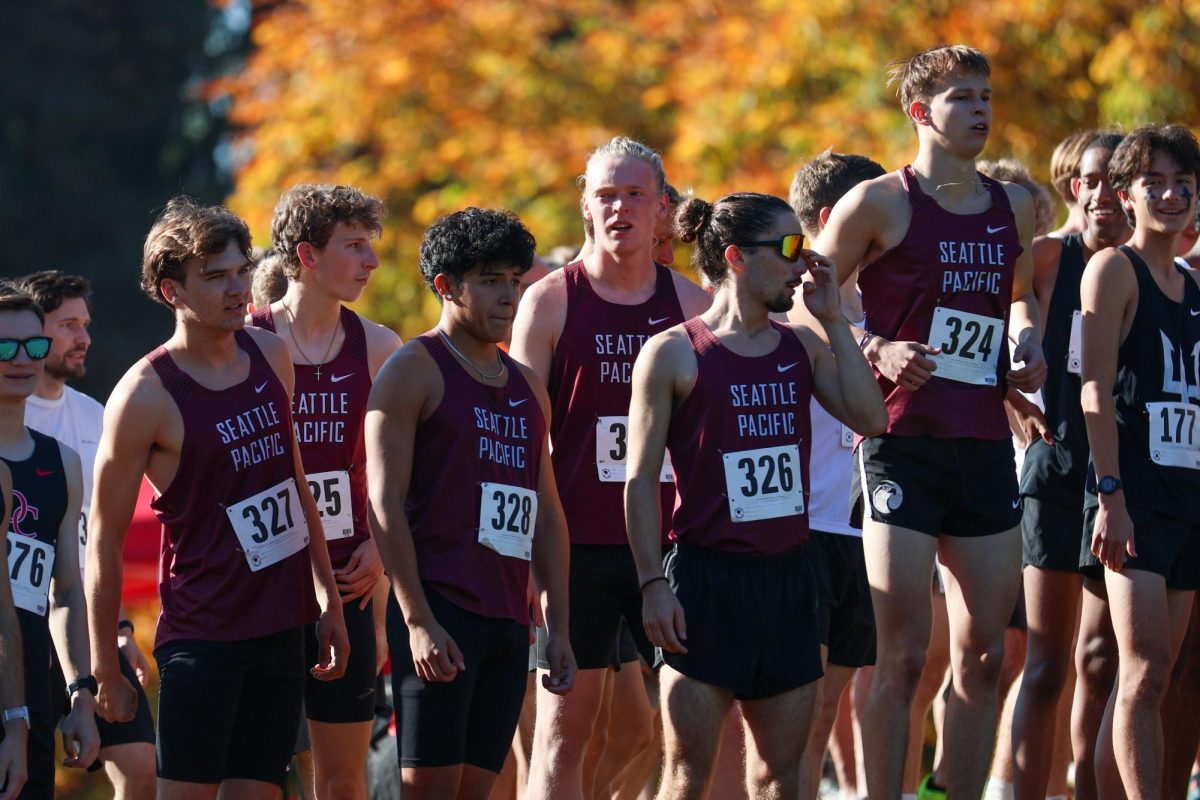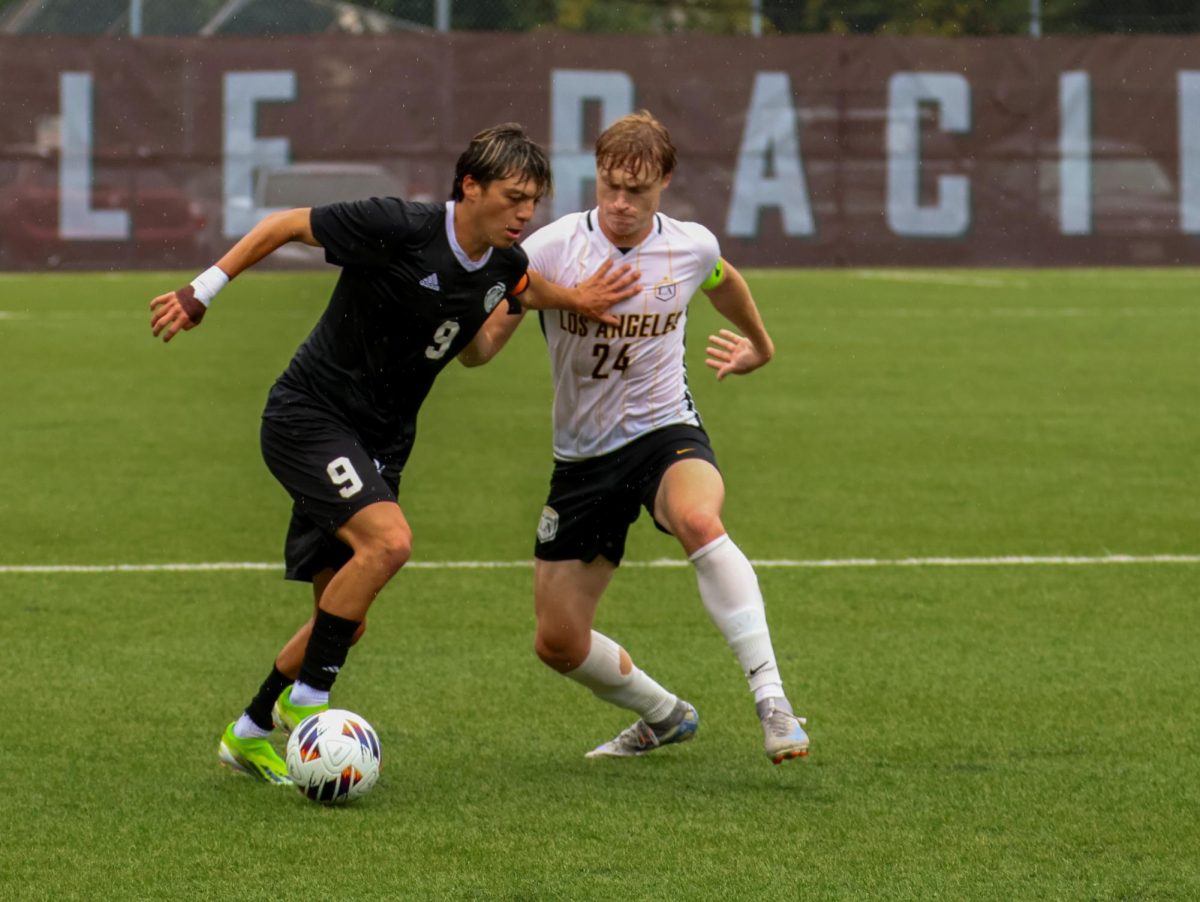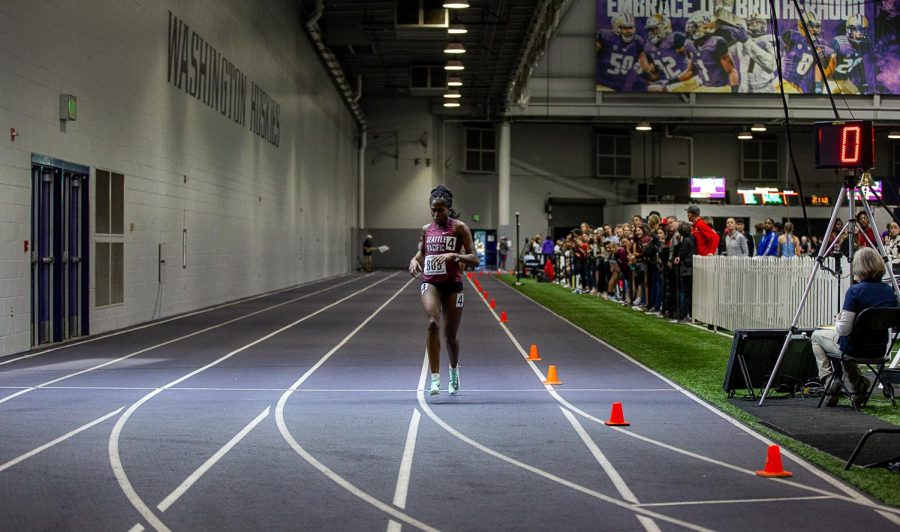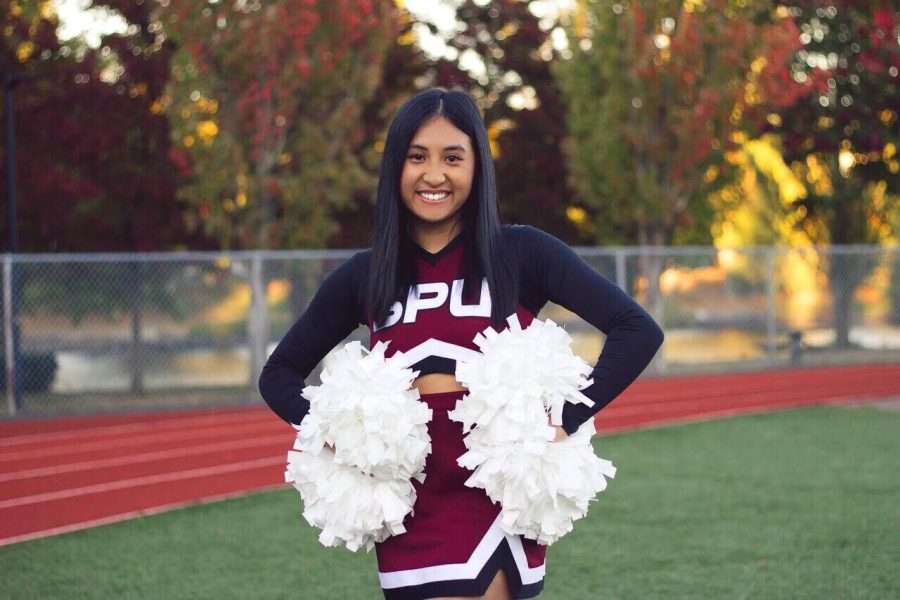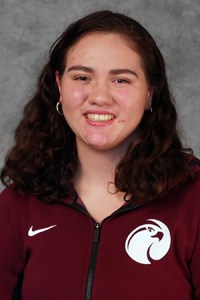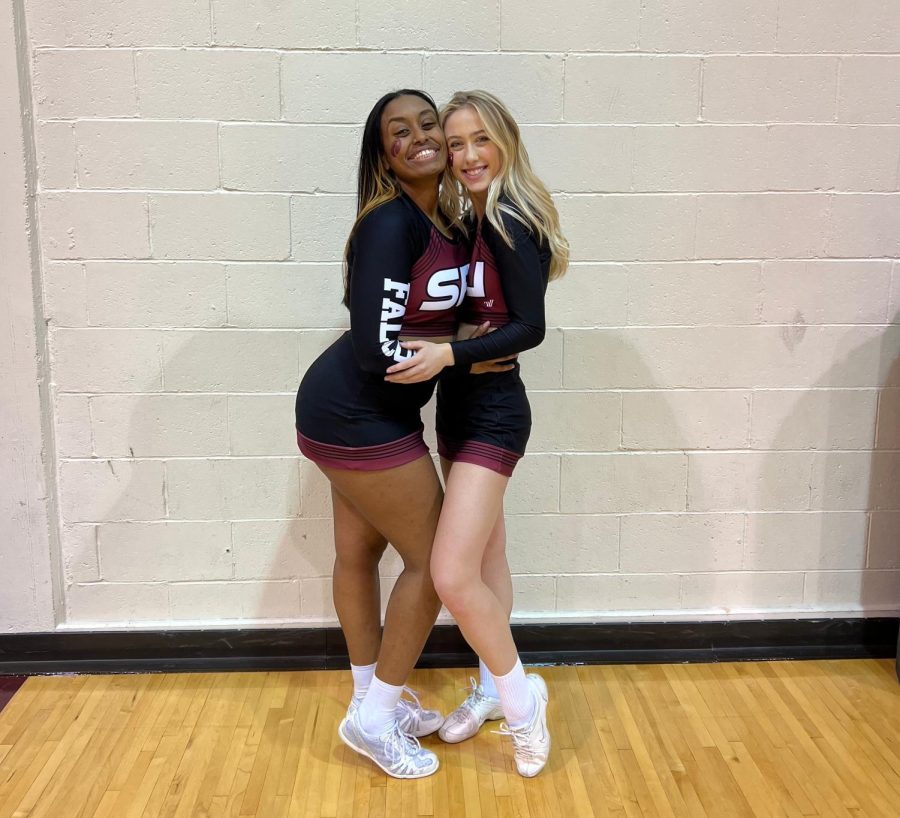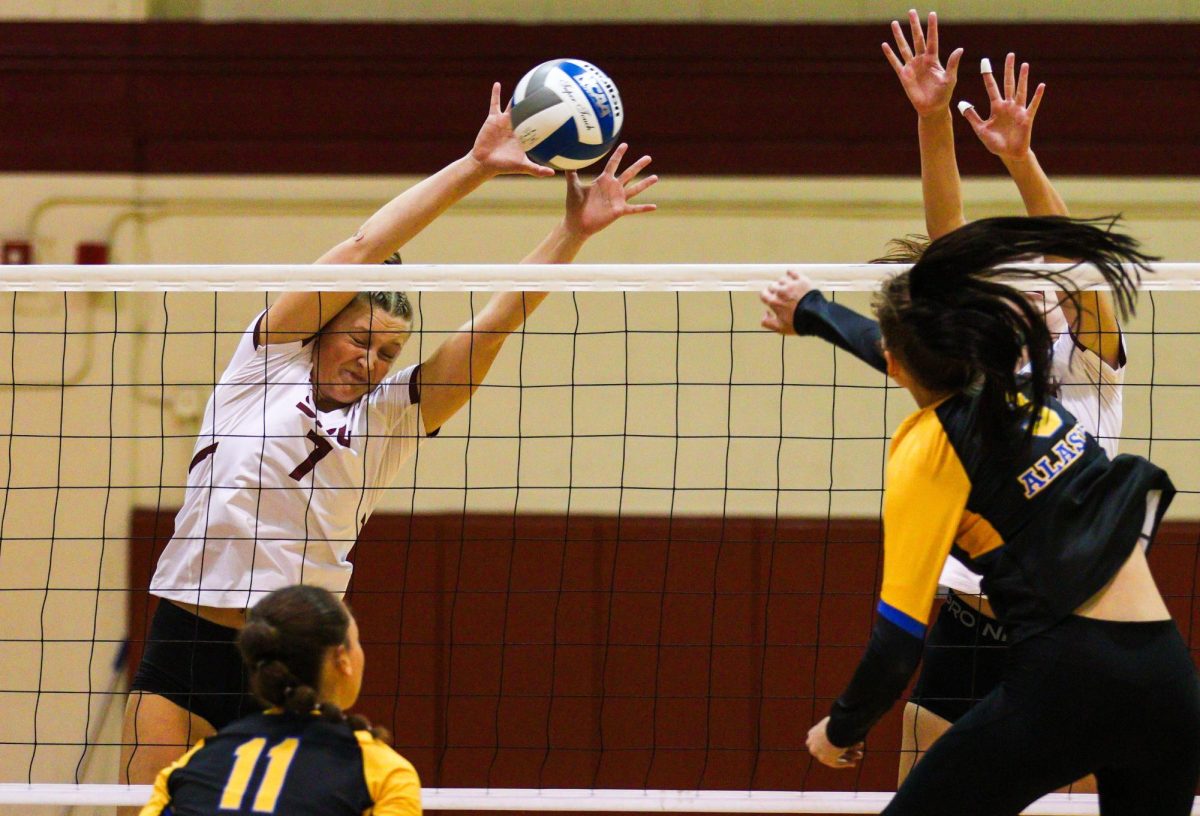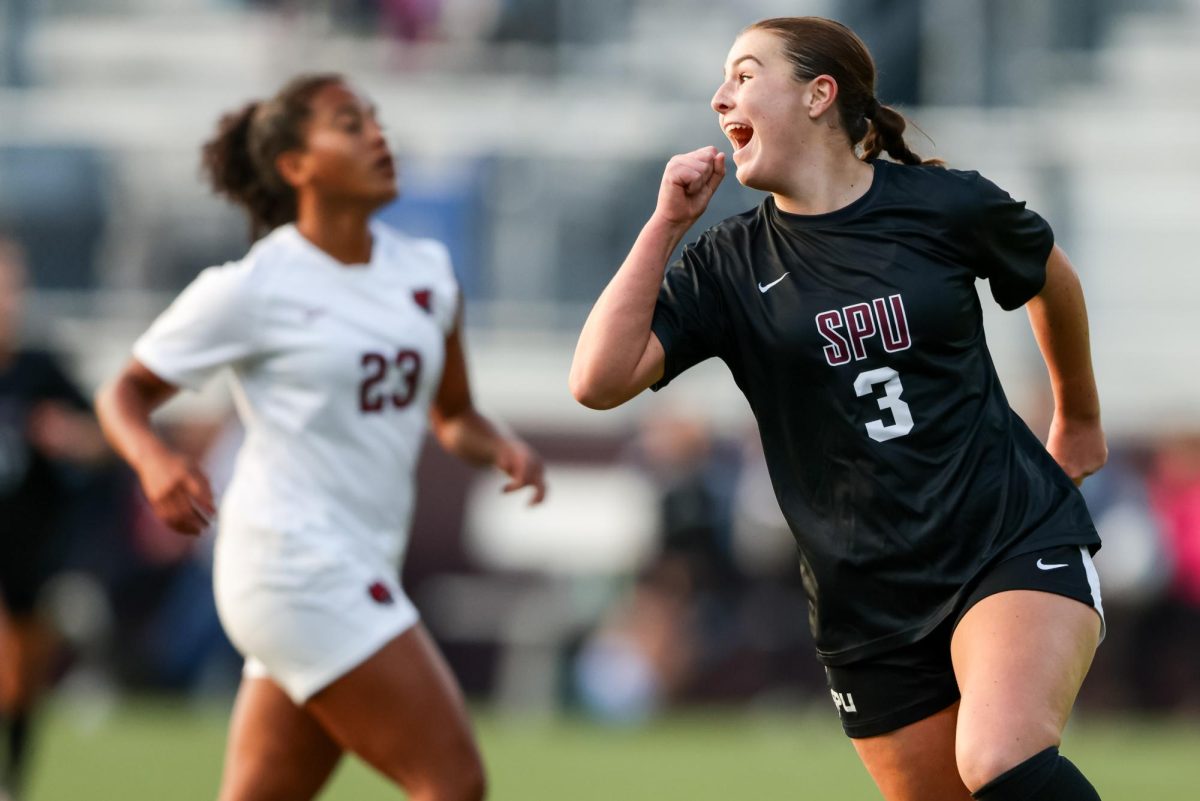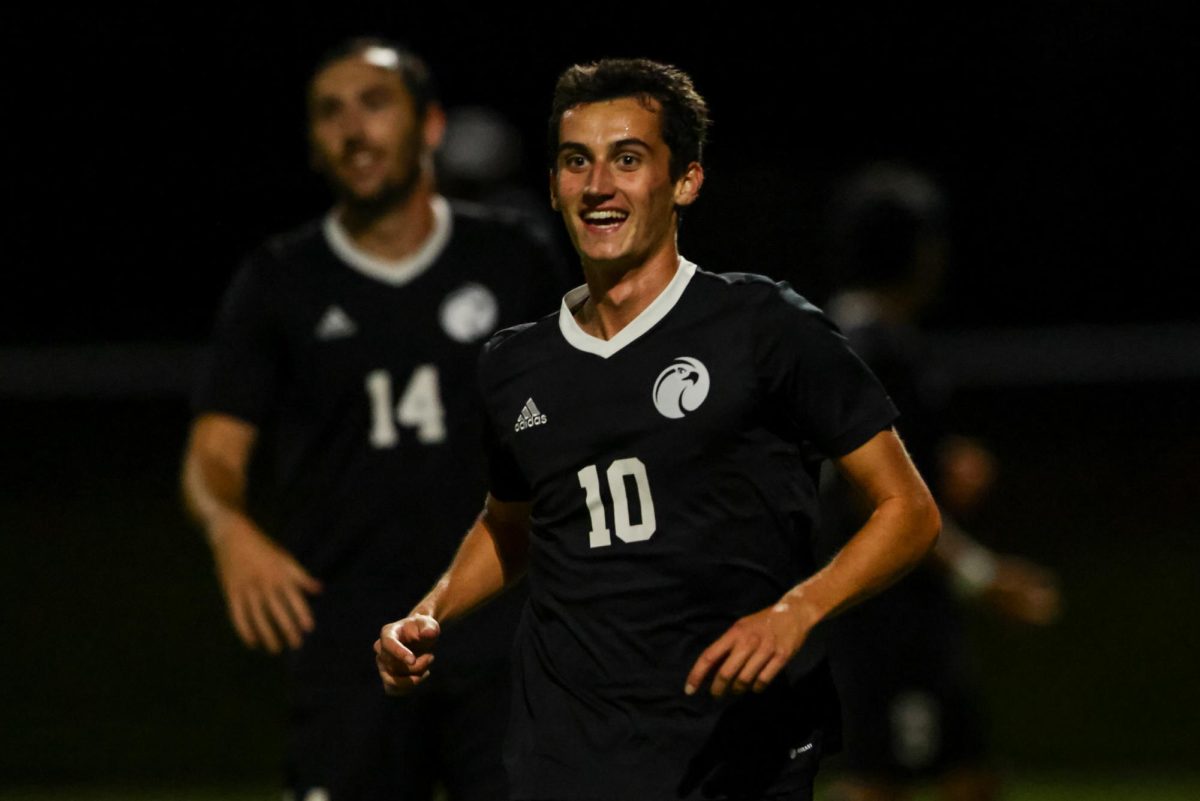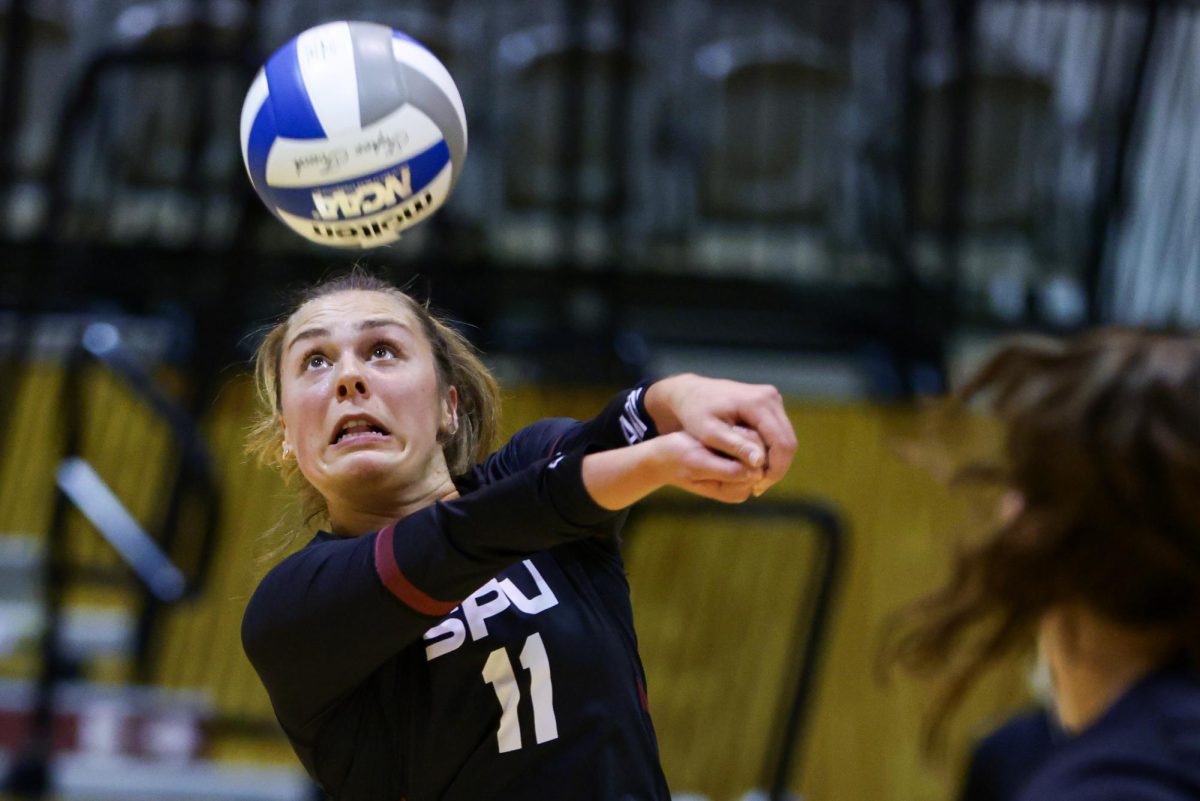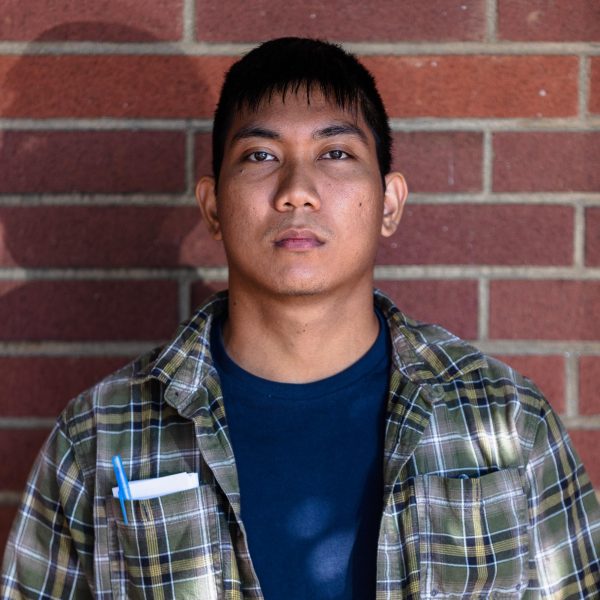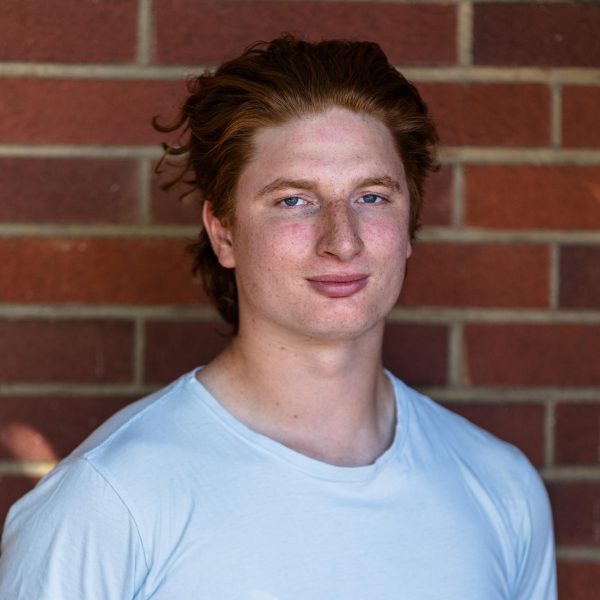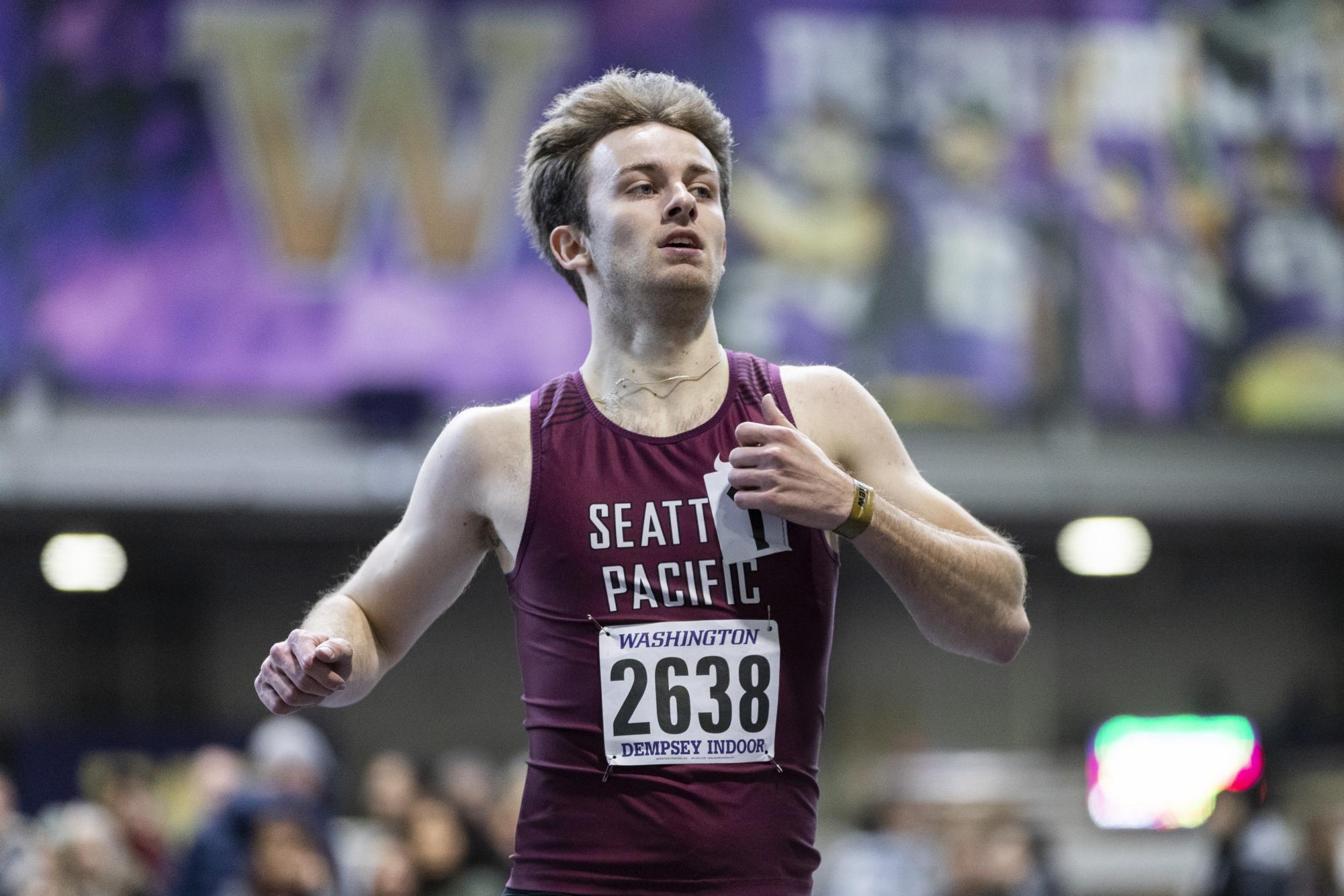
Seattle Pacific University’s student-athletes are revered for their skill on the track, the court, the pitch, and are often commended on their academic achievements, too.
It is a wonder which of the two is the greatest challenge and the greater responsibility, but perhaps, the greatest challenge is managing all the responsibility.
Freshman nursing major Paige Kessler struggles to mediate her classes and personal life with training for the long jump, triple jump and high jump events.
“My classes right now are really hard, and then there’s keeping up with friends, keeping up with my family and boyfriend from home,” Kessler said. “I feel like there are not enough hours in my day to do everything. I wake up at 9 a.m., and then I have classes all day until practice … and then I have to find enough time to eat enough food.”
Like many freshmen, Kessler finds planning to study more of a chore than studying itself.
“That was a huge shock for me last quarter, I was totally unprepared,” Kessler said. “I have a Google Doc [now] that has to-do lists for week one, week two, and so on. All of it comes together at the end to have everything I need to get done. If I didn’t have everything laid out in front of me, I’d be too scatterbrained to figure everything out.”
Kessler recounts having to make judgment calls on whether an assignment should be more important than practice and vice versa.
“Sometimes, school is my main priority, and sometimes, sports is my main priority,” Kessler said. “There [are days] when [I have] one thing I have to get done for school … but I have a track meet until late, so I won’t do the assignment. There [were also] times where I had to be, ‘Coach, I have to sit this one out.’”
Evan Carpenter balances his senior research project as an exercise science major with his practice schedule for running the 200-meter and 400-meter events.
“As a senior for my major, I have to do a year-long research project [with a partner],” Carpenter said. “I have to come up with a research question, do a lot of data collection for it, and then present it at the Erickson Conference at the end of the year. It varies from day to day [but] right now, the [project] takes about ten hours a week.”
Schoolwork only consumes more time as college progresses. With more time being dedicated to schoolwork, athletes have trouble finding time to recover and rest.
Carpenter shared he struggles most with maintaining enough energy to tackle the day.
“The greatest challenge is having the energy to do it all, physical and mental,” Carpenter said. “Everything takes a lot, and [then adding] the energy and expenditure to do a sport of this caliber, and then … the energy to do homework. The hardest thing is taking care of your body. As an athlete, you do need to get enough sleep, you can’t stay up until 4 a.m. doing homework just to wake up at 8:30 a.m. for your 9 a.m. class.”
Similar to Kessler, Carpenter regularly decides whether his sport is more important than school.
“I ask myself, ‘What is more important in this moment?’” Carpenter said. “If I have to choose between staying up late to finish a homework assignment and getting my nine hours of sleep, then I’ll choose to go to bed. I know if I do that homework, I’ll wake up the next morning feeling terrible, and the rest of my day will be awful.”
Senior illustration major Kade Franco runs the 800-meter and one-mile events and manages his volunteering and part-time work responsibilities alongside his practices and school work.
Franco volunteers at the John Perkins Center and is a site leader for Aurora Commons.
“Last quarter, I started volunteering [at JPC]. I would go there every Tuesday morning and prepare meals that would be handed out at the site on Aurora,” Franco said.
As a source of income, Franco works odd jobs during school events and games, which consume hours at a time.
“I have been working at SPU soccer games and volleyball games so I can buy essential things like groceries and stuff like that,” Franco said. “There’s definitely been less [work], but I’m moving on to working at different [basketball] games. Soccer was great because it was long hours, so it has definitely been a little bit tight. I cannot see myself being able to hold [any other] part-time job unless it was on campus.”
Franco learned to navigate his packed schedule by completing work ahead of time.
“Something I’ve learned is to get as much work done as I can at the beginning of the week, probably get an assignment done two days before it’s due,” Franco said. “If I can bust out big things as much as I can, it leads to less stress and more productivity.”
Every athlete receives responsibilities on top of responsibilities, and so they wonder how to deal with it all. The general solution may be for them to do what they can when they can, to choose between their options, or to work ahead of time.
Whichever road they choose, the key to persevering is realizing the ultimate end is achievable and worthwhile.
“It’s not easy being a student-athlete, but my biggest encouragement is to make sure you are enjoying your college experience,” Franco said. “Hopefully, you can do that in a way where you’re also being productive. It’s hard, but it is definitely possible.”

